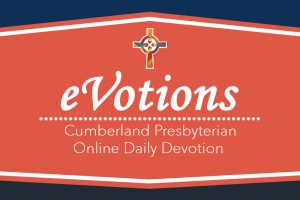By 2030 when all of those in the Baby Boomer generation have reached age 65, older adults will represent about 19% (nearly one-fifth) of the population of the United States or about 72.1 million people. (Information from Administration on Aging Website, May 2014). This number of older Americans is more than double what it was in 2000.
 This group of older adults is not going to be like previous generations. I am in the last half of the Baby Boomer generation, and I have seen a lot of changes for older adults during my life. My grandparents seldom took a trip unless it was to visit family. Their activities were primarily tied to their church and community. Now I know 80-year-olds who are traveling to India and riding elephants or taking cruises to Alaska and going for a ride on a dog sled. With continuing advancements in health care, people are going to continue to live and be active longer.
This group of older adults is not going to be like previous generations. I am in the last half of the Baby Boomer generation, and I have seen a lot of changes for older adults during my life. My grandparents seldom took a trip unless it was to visit family. Their activities were primarily tied to their church and community. Now I know 80-year-olds who are traveling to India and riding elephants or taking cruises to Alaska and going for a ride on a dog sled. With continuing advancements in health care, people are going to continue to live and be active longer.
Having a significant number of older adults in our population means several things:
- They will demand and receive greater representation in political arenas.
- They will influence policies that directly affect them such as health care.
- Because they control three-fourths of the nation’s wealth, marketing will increasingly be directed toward this age group. However, just because this group controls so much of the nation’s wealth does not mean that every older adult will have access to disposable income.
- They are very health and wellness conscious.
- They spend 50% of all vacation dollars in the United States.
- There will be a greater need for health care providers and for caregivers.
Churches have tended to focus so much of their energy and resources on children and youth that they may not be prepared to meet the needs of this rapidly growing segment of our society. So, what does all of this mean for the church?
- The church must be intentional about providing programming and resources for older adults, which must be relevant to their lifestyles. (i.e. They might be more interested in an exercise program than a potluck lunch at the church.)
- The church will need to find ways to communicate with older adults who travel frequently so that they can maintain a connection with the church.
- Older adults use technology and are increasingly expecting the church to do so as well.
- The church must find meaningful places of service for older adults.
- Sponsor an older adult mission trip.
- Adopt a Habitat for Humanity project.
- Volunteer at a local school.
- Establish a mentoring program.
- Create a “Helping Hands” group that will volunteer to help others in the community with things such as mending, car repair, transportation, etc. There is a free internet tool called “Lotsa Helping Hands” that allows people to create an online “community.” When people volunteer to help in a given situation, add them to the community so that when a need arises, they will be notified and can choose whether or not to volunteer. This process removes the stress of someone having to ask a specific person who may or may not be available. Check out http://www.lotsahelpinghands.com/.
- The church should explore ways in which it can partner with other organizations in the area to meet the needs of older adults for things such as:
- Health screenings
- Health care equipment loans
- Exercise groups
- Social gatherings
- Meals
- Transportation
Our aging population presents new and different opportunities for ministry. How will you take advantage of those opportunities?




Leave a Reply
Your email is safe with us.